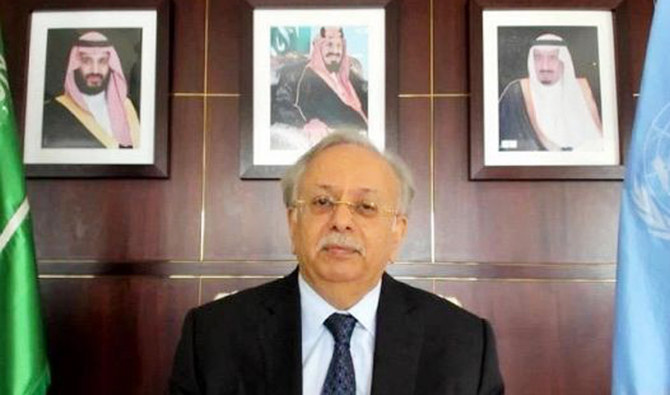
by AFP -- France and its NATO ally are at loggerheads over a range of issues including maritime rights in the eastern Mediterranean, Libya, Syria and the escalating conflict between Armenia and Azerbaijan over Nagorno-Karabakh. But Ankara has now been particularly incensed by a campaign championed by Macron to protect France's secular values against radical Islam, a debate given new impetus by the murder this month of a teacher who showed his class a cartoon of the prophet Mohammed. "What can one say about a head of state who treats millions of members from different faith groups this way: first of all, have mental checks," Erdogan said in a televised address in the central Anatolian city of Kayseri. "What's the problem of the individual called Macron with Islam and with the Muslims?" Erdogan asked. "Macron needs mental treatment," Erdogan added, while indicating he did not expect the French leader to win a new mandate in 2022 elections.
'No condolences' In a highly unusual move, a French presidential official said that the French ambassador to Turkey was being recalled from Ankara for consultations and would meet Macron to discuss the situation in the wake of Erdogan's outburst. "President Erdogan's comments are unacceptable. Excess and rudeness are not a method. We demand that Erdogan change the course of his policy because it is dangerous in every respect," the official told AFP. The Elysee official, who asked not to be named, also said that France had noted "the absence of messages of condolence and support" from the Turkish president after the beheading of teacher Samuel Paty outside Paris. The official also expressed concern over calls by Ankara for a boycott of French goods. Macron this month described Islam as a religion "in crisis" worldwide and said the government would present a bill in December to strengthen a 1905 law that officially separated church and state in France. He announced stricter oversight of schooling and better control over foreign funding of mosques.
BEIRUT, (Xinhua) — A massive fire broke out on Friday after midnight in Lebanon’s city of Jbeil and spread over an area …

by arabnews.com -- NEW YORK: Saudi Arabia’s ambassador to the UN, Abdallah Al-Mouallimi, reaffirmed the Kingdom’s support for the Lebanese people in their crisis, especially after the explosion that rocked Beirut in August. He expressed great sadness about the extensive damage and human fatalities that resulted. Al-Mouallimi was addressing the meeting of the Regional Bureau for Arab States of the UN Development Program with the permanent representatives of the Arab Group on Lebanon. He said: “I am pleased to be with you today to discuss the measures taken to deal with the crisis in Lebanon; Lebanon is an important member of the Arab Nation and holds a special place in the heart of the Saudi people.” He reiterated the support for Lebanon and its people in confronting the challenges that have been aggravated by the explosion and the impact of COVID-19.

by BY REBECCA COLLARD -- foreignpolicy.com -- Former Lebanese Prime Minister Saad Hariri is back by unpopular demand, pledging to do better this time (his fourth as premier) as Lebanon reels from its months of political paralysis, its worst financial crisis in decades, the coronavirus pandemic, and the aftermath of the deadly Aug. 4 explosion at the port of Beirut. On Thursday, a slim majority of the Lebanon’s members of parliament agreed to have Hariri return as prime minister-designate and form a new cabinet—which will be his first tough test. His return will not be welcomed by the hundreds of thousands of Lebanese who have been in the streets in protest since last October, when they secured their biggest victory by forcing Hariri’s resignation. But after a year of dashed hopes, protesters are greeting his return with more despair than anger.
Wait, Hariri resigned a year ago in answer to the popular protests. How is his return supposed to be the solution to Lebanon’s problems, which have only gotten worse since then? Hariri is back as prime minister in large part because there’s not really anybody else whom Lebanon’s political parties would agree on. Hassan Diab, who succeeded Hariri last fall, resigned himself after the August explosion, which killed almost 200 people and was widely seen as the result of government incompetence and corruption. After him came Mustapha Adib, then (and now again) Lebanon’s ambassador to Germany. But he couldn’t form a new cabinet and stepped down as prime minister late last month.
Khazen History


Historical Feature:
Churches and Monasteries of the Khazen family

St. Anthony of Padua Church in Ballouneh
Mar Abda Church in Bakaatit Kanaan
Saint Michael Church in Bkaatouta
Saint Therese Church in Qolayaat
Saint Simeon Stylites (مار سمعان العامودي) Church In Ajaltoun
Virgin Mary Church (سيدة المعونات) in Sheilé
Assumption of Mary Church in Ballouneh
1 - The sword of the Maronite Prince
2 - LES KHAZEN CONSULS DE FRANCE
3 - LES MARONITES & LES KHAZEN
4 - LES MAAN & LES KHAZEN
5 - ORIGINE DE LA FAMILLE
Population Movements to Keserwan - The Khazens and The Maans
ما جاء عن الثورة في المقاطعة الكسروانية
ثورة أهالي كسروان على المشايخ الخوازنة وأسبابها
Origins of the "Prince of Maronite" Title
Growing diversity: the Khazin sheiks and the clergy in the first decades of the 18th century
Historical Members:
Barbar Beik El Khazen [English]
Patriach Toubia Kaiss El Khazen(Biography & Life Part1 Part2) (Arabic)
Patriach Youssef Dargham El Khazen (Cont'd)
Cheikh Bishara Jafal El Khazen
Patriarch Youssef Raji El Khazen
The Martyrs Cheikh Philippe & Cheikh Farid El Khazen
Cheikh Nawfal El Khazen (Consul De France)
Cheikh Hossun El Khazen (Consul De France)
Cheikh Abou-Nawfal El Khazen (Consul De France)
Cheikh Francis Abee Nader & his son Yousef
Cheikh Abou-Kanso El Khazen (Consul De France)
Cheikh Abou Nader El Khazen
Cheikh Chafic El Khazen
Cheikh Keserwan El Khazen
Cheikh Serhal El Khazen [English]
Cheikh Rafiq El Khazen [English]
Cheikh Hanna El Khazen
Cheikha Arzi El Khazen
Marie El Khazen